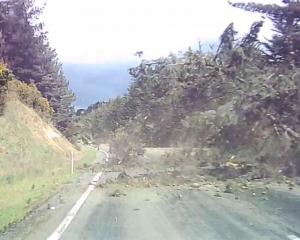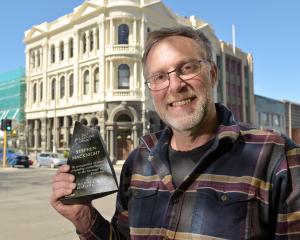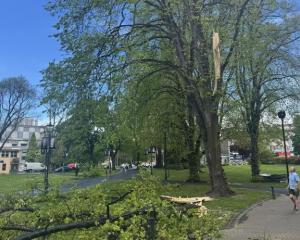The hearing into a plan change to allow residential development as well as industrial development beside the Steamer Basin heard from someone who thought those activities could co-exist.
Craig Ross said he had operated two residential units in Fryatt St since 2002.
They were surrounded by businesses, some of which had objected to the plan.
"Since that time, both flats have been fully tenanted and are highly sought after, leading to many tenants staying on for several years."
While the area was busy during the day, after 5pm it emptied, and tenants enjoyed "peace and tranquillity" at night and during weekends.
He disputed Port Otago's claim the area had high noise levels.
Outside working hours it did not, and port activity was sporadic, and concentrated away from the Steamer Basin.
But Mr Ross was almost a lone voice, as other businesses and organisations bemoaned already increasing rentals, the threat of noise complaints and transport disruption, and the scarcity of industrial land in Dunedin.
The Otago Chamber of Commerce began the day's hearings, speaking for 17 businesses in the area.
Chairman Mark Willis said his organisation was concerned consultation was limited to the "vision document" the Dunedin City Council produced, rather than the plan changes themselves.
Mr Willis reinforced in his submission what the hearing heard all last week; that no other industrial land in Dunedin offered the same use, synergies between businesses, and efficiency the harbourside provided.
He said only 3% of the 179ha of available, usable land for industry in Dunedin was vacant.
Truck and trailer units used the roads at the harbourside for unloading, something that would not be compatible with a cafe or bar, or an area used by more pedestrians.
"The plan change is going to introduce uses that are incompatible, and the conflicts can not be adequately mitigated," Mr Willis said.
Hall Bros managing director Doug Hall said the harbourside was the only piece of industrial land left in the area, and rents were "going up and up".
"If the vision goes ahead, Dunedin will lose all its industrial land. There will be nothing left."
The Otago Yacht Club supported the Harbourside vision.
But club commodore Bert Youngman told the hearing the club was concerned new aquatic recreation facilities were unlikely to be built unless funded by a public authority.
And the club did not want the marine industry to be pushed from its land.
Mr Youngman asked that the Otago Regional Council's coast plan be approved, despite what he described as "limitations".
"Time will tell if the maritime side of it ever happens."
For the Dunedin Ratepayers and Householders Association, Tony Borick said access to the area had not been given enough consideration.
There was already apartment living in the city, and the other activities the plan change would create, and there was room for development to the south of the Octagon.
"The project is ill-conceived and unnecessary, and should be declined in its entirety."
For the Department of Conservation, ranger Jim Fyfe told the hearing biodiversity and wildlife values were present in the proposed harbourside zone, despite human modification of the shoreline.
The council needed to accept that, he said.
There were 90 species of fish and 51 species of bird in a harbour that was a feeding ground rather than a breeding ground.
The harbour and the adjacent coast held about 20% of the world's total of Stewart Island and spotted shags.
Fur seals, sea lions, leopard seals, dusky and bottle-nose dolphins fed there.
Mr Fyfe said bird species using the shoreline of the upper harbour had increased as human use of the wharves had decreased, highlighting the need to plan carefully to avoid affecting them.
Artificial bird-roosting areas - flat floating pontoons were "perfect" for roosting - had been provided in other areas of New Zealand, Mr Fyfe said.
Fonterra counsel Dr Joan Forret, of Hamilton, presented Fonterra's opposition to the plan change.
It repeated the reverse sensitivity concerns of other businesses in the area, covering traffic, safety, noise, and the lack of industrial land.
Fonterra was also concerned the development might restrict expansion and development at its Kitchener St coolstore, at the same time that its second facility at Awatea St is set to make way for the proposed stadium.
Chalmers Properties Ltd, Port Otago's property investment subsidiary and owner of much of the harbourside land, will today begin what is expected to be a two-day submission.
Port Otago is owned by the Otago Regional Council.











